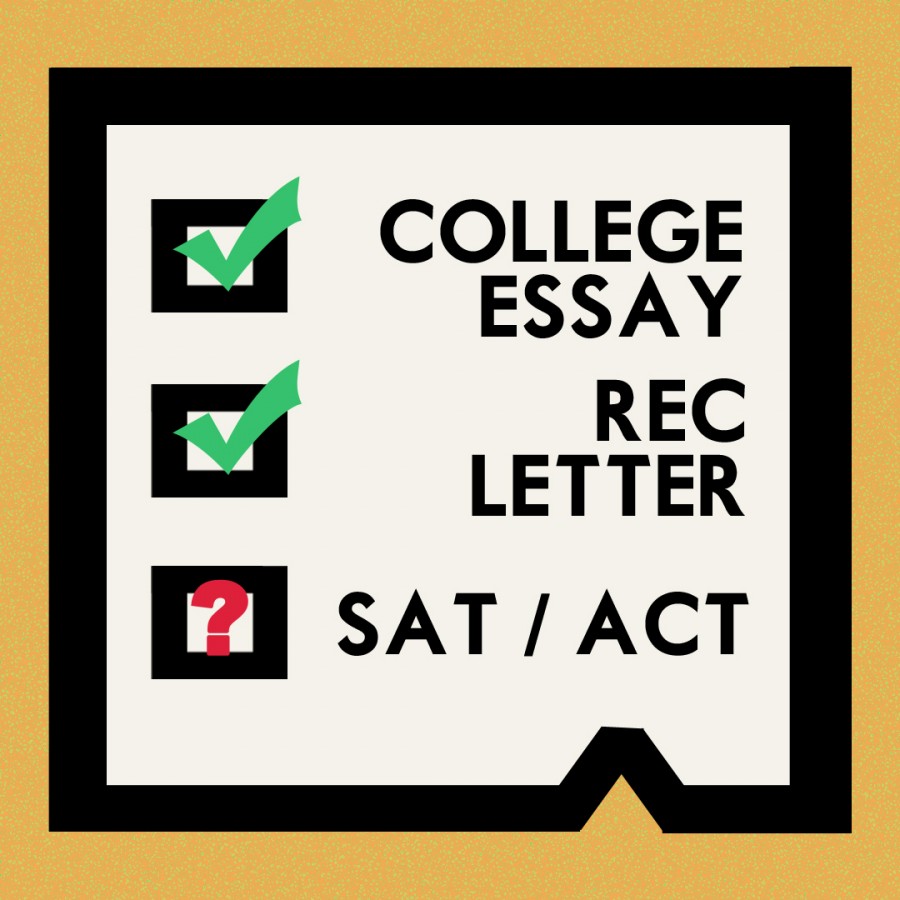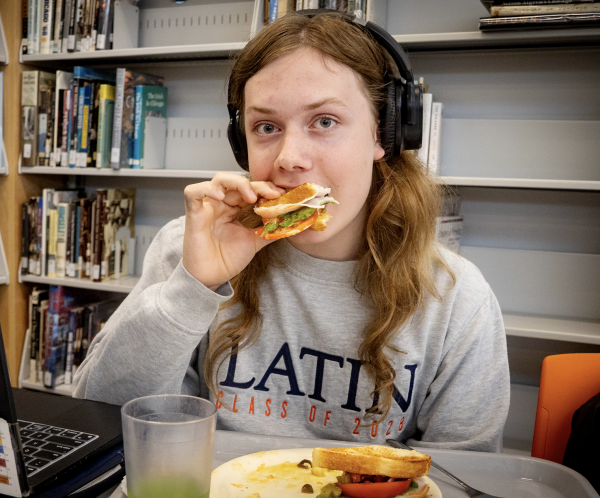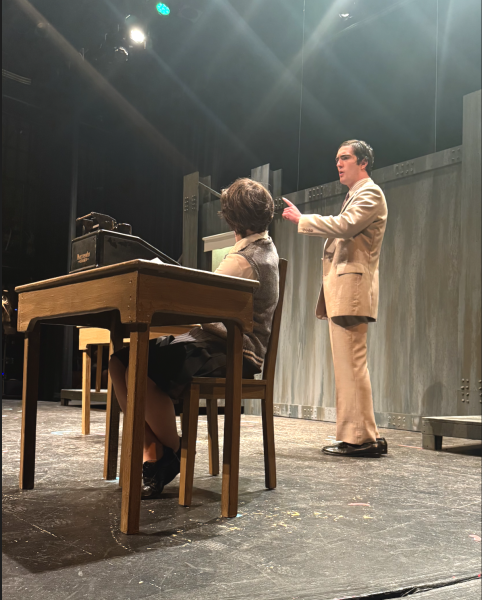US Colleges and Universities Move to Go Test-Optional
April 25, 2020
As their inboxes fill with updates from standardized testing companies and colleges, many juniors may find it difficult to keep track of all of the changes. The coronavirus pandemic has created a state of uncertainty in the area of college admissions, and standardized testing organizations and institutions of higher education have been working on how to best respond.
“I have been struggling to take any standardized tests, and there is just a lot of uncertainty. Some of my tests have been cancelled, and I’m not sure when I’ll be able to take them,” says junior Bianca Arriaga.
The College Board has officially canceled the June administration of the SAT and SAT Subject Tests, promising to administer the SAT monthly starting in August and continuing through the end of 2020. The ACT plans to offer June 20 and July 25 testing dates this summer in addition to the June 13 and July 18 dates. However, due to public health concerns, these testing plans are subject to change.
Junior Alex Laverty sums up the worries of many. “I just hope I’m not forced to make decisions that I wouldn’t have made if we weren’t in this situation,” he says. “I’d rather not turn in my first score.”
Some colleges have responded by removing their standardized testing requirements. The University of California system, for example, will no longer require applicants for the fall of 2021 to submit SAT or ACT scores. Other schools, like Davidson College and Tufts University, will pilot a three-year test-optional admissions policy. Some others, including the University of Oregon and Oregon State University, have decided to permanently adopt a test-optional policy. While other schools, such as Harvard University, have not dropped their standardized testing requirements for undergraduate admissions, they have announced that current juniors applying for fall 2021 admission who do not submit SAT Subject Test scores will not be disadvantaged.
“For those who have had standardized testing cancelled, my recommendation would be to sign up for the next available test, even if that isn’t until later into the fall,” Ms. Fields from the Latin College Counseling Office advises. “There are a few important things to remember here. One, ACT and College Board are businesses, and it is in their best interest to get as many students to take the test as possible. So, I suspect that they will work very hard to ensure anyone who wants to take a test will be able to take a test. Two, many, many schools will be going test optional next year, in addition to the large group of schools who were already test optional. So, if your score is not where you’d like it to be because you only had a chance to take it once, know that you might not even end up sending that score to all or many of your schools. Your counselor will be able to advise you on this when you have a final list. Third, many students test in late fall of their senior year under normal circumstances, and often it is these later test dates that yield the highest scores, so we have plenty of time.”
Regarding what a test-optional policy might mean for applicants, Ms. Fields explains, “Many schools already practice holistic admissions, meaning that they consider each and every piece of a student’s application, and the context of that application, when making admissions decisions. If a school is choosing to go test optional, they will simply rely on other pieces even more.”
While schools continue to review and change their admissions policies, the applicant pool might also see changes. “While we can’t say for sure how this might impact what applicant pools look like, many in the field are guessing that schools might receive less international applicants, and that even domestically, students might be feeling more inclined to stay closer to home,” Ms. Fields says.
Another subject of concern has been grades for the spring 2020 semester. Some students worry that colleges might value grades from this semester less, but Ms. Fields does not anticipate that this will be the case. “I don’t think it’s accurate to say that they will value spring 2020 grades less, but rather that they will view those grades within the context of this difficult time we are in, and they will know these classes took place in a virtual format.”
Though high schools like Latin have continued to issue letter grades, others, such as the University of Chicago Laboratory Schools, have adopted pass/fail grading for this semester.
“Junior College Workshop has not been running since before break, which means we are very behind, and my counselor does not know me at all, so I’m afraid I will not get an accurate recommendation letter,” Freddie Tang, a junior at Lab, says. “On top of that, I have been feeling worried because of the cancellation of many of my extracurriculars, such as tennis, math, and science team, as well as various competitions. However, the pass/fail system has reduced my stress.”
Freddie brings up another major concern for students: the effect of the pandemic on extracurricular activities. “Some of my extracurriculars, like yearbook, have been able to work online, but some of my other extracurriculars, like math team, have had to end their season early,” Bianca Arriaga shares.
Musicians who participate in ensembles and orchestras have been particularly affected. Alex Laverty is a cellist in the Philharmonic Orchestra of the Chicago Youth Symphony Orchestras. In lieu of rehearsals, he is required to submit clips of particular passages from the orchestral repertoire they had been working on before the outbreak. “But there’s obviously no real substitute for orchestra, so that experience has basically just stopped,” Alex says. On the other hand, he feels that meeting over Skype for private lessons has been an adequate substitute for meeting in-person.
However, for junior Shahab Kousheshi, the cancellation of extracurricular activities has not been the worst part of the pandemic regarding his college process. “As far as extracurriculars, it was disappointing to have my lacrosse season canceled,” he says. “But the biggest thing for me was having my tours canceled. I can’t leave in the winter because of basketball, and I’m going to be working most of the summer, so that spring break was crucial for me to see colleges.” Instead, students can engage with schools virtually.
“Within a week or two into quarantine, I got emails of colleges offering virtual tours, video meetings with student ambassadors, and information sessions,” junior Ronil Awalegaonkar says. “I’m amazed by the responsiveness of colleges throughout the country. In the end, I haven’t deviated much from my original plans.” Ms. Fields anticipates that this will be the case for most juniors.
“Most of the college application process is going to end up being the same for juniors, the timeline just might look a bit different,” she says.
Some seniors, like Kendal Seymore, have not had their college decision processes affected by the coronavirus outbreak, but others have been forced to make decisions with limited information. Kendal had already attended a summer program at the Wharton School of the University of Pennsylvania when he decided to continue his studies there this upcoming fall, so he felt comfortable making that decision quickly.
Tej Bahri, on the other hand, was admitted to Middlebury College, which he had not visited, but ultimately decided to pursue engineering at the University of Michigan. “I was able to visit Ann Arbor, which probably biased my decision,” Tej explains. “And when it came down to it, I just didn’t know enough about Middlebury.”
Jonathan Wuyan was in a similar situation when he decided to attend the University of Southern California. He did his best to engage with colleges virtually, as he had planned to visit campuses this spring. “When a student visits a school after they are admitted, it’s not about hearing from department heads and the logistical side of things,” Jonathan says. “It’s about taking in the student life, feeling the school spirit, and interacting with professors and students. You just can’t get that virtually.”
Despite all the downsides of the current circumstances, Elizabeth Lin, a junior at Lab, finds a positive element of the situation. “I think that the stay-at-home order, while upsetting, has pushed me to think more about who I am and my academic profile and story, which I will be sharing with colleges in just a few short months.”
In the midst of all the craziness, Ms. Fields reminds us to take a step back and think about the bigger picture. “It’s important to remember that this situation is literally impacting the entire world. Colleges and universities are full of humane, empathetic people who are trying to figure this out just like we are. The College Counseling Office is prepared to help everyone through this, and it’s all going to be ok!”






















































